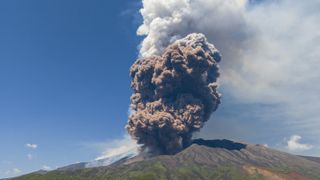
Patrick Pester
Patrick Pester is the trending news writer at Live Science. His work has appeared on other science websites, such as BBC Science Focus and Scientific American. Patrick retrained as a journalist after spending his early career working in zoos and wildlife conservation. He was awarded the Master's Excellence Scholarship to study at Cardiff University where he completed a master's degree in international journalism. He also has a second master's degree in biodiversity, evolution and conservation in action from Middlesex University London. When he isn't writing news, Patrick investigates the sale of human remains.
Latest articles by Patrick Pester

Texas flood devastation revealed in before-and-after satellite images
By Patrick Pester published
Satellites have captured before-and-after images of the devastating floods in Texas, highlighting a trail of devastation on the Guadalupe River.

'Alpha male' primates are rare, with females about as likely to dominate the opposite sex, study finds
By Patrick Pester published
Researchers have found that clear-cut male dominance is rare in primates, with both sexes capable of reigning supreme depending on the circumstances.
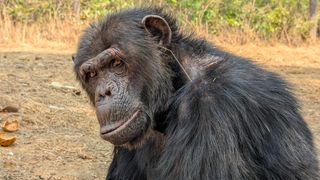
Chimps develop fashion trend by shoving grass in their ears — and in their butts
By Patrick Pester published
Chimpanzees are running around with grass in their ears and butts at the Chimfunshi Wildlife Orphanage in Zambia. This is the second time a bizarre fad-like behavior has gripped the sanctuary's chimps, but wearing the grass accessories in their butts is a new twist.
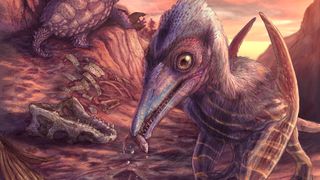
'Ash-winged dawn goddess' is oldest pterosaur ever discovered in North America — and it was small enough to sit 'on your shoulder'
By Patrick Pester published
A cache of Triassic fossils in Arizona has revealed Eotephradactylus mcintireae, or "ash-winged dawn goddess," the oldest pterosaur ever discovered in North America.

An 'interstellar visitor' and the oldest ancient Egyptian genome ever sequenced
By Patrick Pester published
Science news this week July 5, 2025: Our weekly roundup of the latest science in the news, as well as a few fascinating articles to keep you entertained over the weekend.

Our gut bacteria can absorb and remove toxic 'forever chemicals' — at least in lab mice
By Patrick Pester published
An experiment in lab mice found that certain human gut bacteria can absorb PFAS, commonly called "forever chemicals," until they are excreted, new study finds.
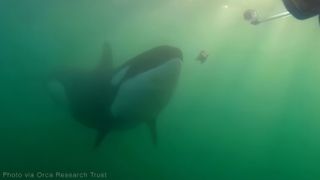
Wild orcas offer humans food. Could they be trying to make friends — or manipulate us?
By Patrick Pester published
Researchers have documented orcas dropping prey and other marine life in front of humans, as if offering us food. The orcas' motives are uncertain, but the sharing behavior could be an attempt at a cross-species relationship or manipulation.

Bear's new metal tooth is world's biggest-ever crown
By Patrick Pester last updated
Lake Superior Zoo in Minnesota announced it has given a brown bear the world's largest dental crown, with the bear now sporting a silver-colored metal canine
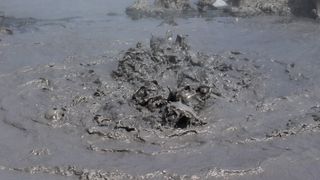
Watch mud volcano erupt beneath a crown of flames in Taiwan
By Patrick Pester published
The Wandan mud volcano has erupted in Taiwan, sending bubbling mud shooting into the air as locals ignite ejected gases with burning rags.

Listen to the Andromeda galaxy's stars played as musical notes in eerie NASA video
By Patrick Pester published
NASA's Chandra Observatory has combined different wavelength images of the Andromeda galaxy to honor astronomer Vera Rubin, and then created a music video by converting the light in those images to musical notes.
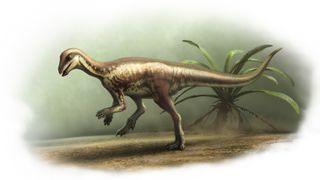
Mysterious 'runner' dinosaur a sign there are more Jurassic secrets to unlock beneath western US
By Patrick Pester published
The discovery of Enigmacursor mollyborthwickae, a dog-size "runner" dinosaur, has left researchers re-evaluating Nanosaurus and several other US dinosaurs from the Morrison Formation in Colorado.
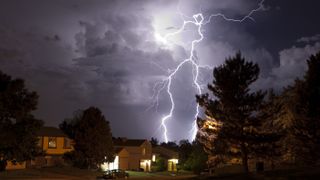
Thunderstorm 'Ring of fire' erupts around 'heat dome' and Tropical Storm Andrea named in the Atlantic
By Patrick Pester published
The "heat dome" hovering over the eastern half of the U.S. now has a thunderstorm "ring of fire" erupting along its edge. Meanwhile, in the Atlantic, the first tropical storm of the season has been named.

Sun 'hole' expected to produce intense auroras tonight, potentially visible from 15 US states
By Patrick Pester published
A coronal hole in the sun could result in visible auroras over about 15 U.S. states tonight (June 25), with the Space Weather Prediction Center expecting a moderate geomagnetic storm.
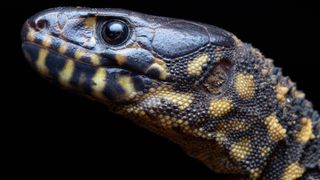
Night lizards survived dinosaur-killing asteroid strike despite living right next to impact site
By Patrick Pester published
Researchers found that night lizards survived the dinosaur-killing asteroid strike at the end of the Cretaceous, despite living near the impact site in Mexico.

Alcohol-soaked star system could help explain 'why life, including us, was able to form'
By Patrick Pester published
The Atacama Large Millimeter/submillimeter Array has detected methanol isotopes around a nearby star, which could help explain why the ingredients for life are present on Earth.

Rubin Observatory releases 'sneak peek' of first images taken with world's largest camera
By Patrick Pester published
The world has gotten an early preview of the Rubin Observatory's first images, which include stunning snaps of spiraling galaxies and the Trifid and Lagoon nebulae.

Massive 'heat dome' is bringing 'extremely dangerous' temperatures to the eastern half of the US
By Patrick Pester published
Weather forecasters have warned of extreme and dangerous temperatures as a major heat wave sweeps across the central and eastern U.S. states.
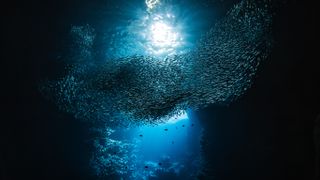
Earth's oceans are a 'ticking time bomb' as acidity levels enter 'danger zone,' study suggests
By Patrick Pester published
Researchers have found that ocean acidification entered a "danger zone" in 2020, suggesting increased carbon dioxide levels have caused Earth to breach another planetary boundary.

'Strawberry Moon' in pictures: Major lunar standstill sees June's full moon hang low in the sky
By Patrick Pester published
Last night's "Strawberry Moon" hovered lower in the night sky than it had done since 2006. Here are some stunning global snaps of June's full moon during the major lunar standstill.
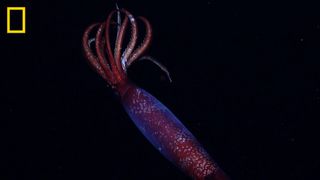
Haunting blood-red squid with large hooks drifts through Antarctic ocean's midnight zone in world-first video
By Patrick Pester published
Researchers have filmed a living Antarctic gonate squid in a world-first sighting deep in the ocean surrounding Antarctica.

See a young star potentially giving birth to a giant planet in new image from Very Large Telescope
By Patrick Pester published
New images of a young star, 2MASSJ1612, could have captured the birth of a giant gas planet larger than Jupiter.

College student discovers psychedelic fungus that eluded LSD inventor
By Patrick Pester published
A West Virginia University student has identified an elusive fungus that contains psychedelic chemicals similar to LSD.
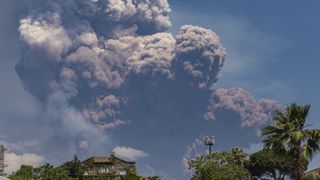
Mount Etna eruption in images: See Europe's largest active volcano blow from different angles
By Patrick Pester last updated
The latest Mount Etna eruption triggered an avalanche of volcanic material and sent ash miles into the air. Spectacular photos and videos capture the eruption of Europe's largest active volcano.

Cats recognize familiar BO and can spot strangers from the stink of their armpits and toes
By Patrick Pester published
Researchers have found that cats spend longer sniffing a stranger's odor than their owner's odor, suggesting they can distinguish between familiar and unfamiliar humans from scent alone.
Get the world’s most fascinating discoveries delivered straight to your inbox.
